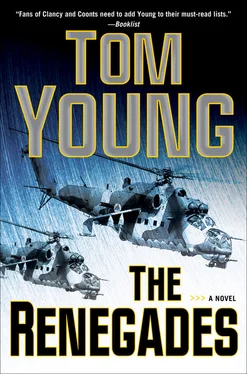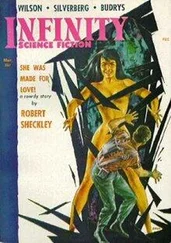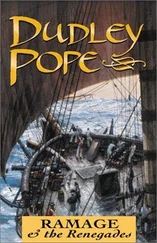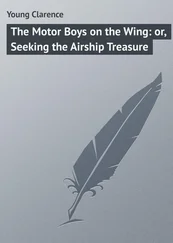Reyes asked himself questions for months. What if he’d suggested carrying her externally? What if he’d mentioned the grinding he’d felt in the cable? What if he’d gotten her out earlier and sent her up first? Questions without answers.
“You have a hard job,” Gold said when Reyes finished his story.
“I’ve made my peace with it,” he said. “You do what you can do, and that’s all you can do.”
Gold knew he was right, but she had a hard time making herself believe it. Maybe she had spent so much time in Afghanistan that part of her could never leave the place, never let go. At least she could get her mind around half of Reyes’s philosophy—the part about doing all you could do. And right now, that involved a road trip.
* * *
The first mortar hit just as Parson and Rashid left flight planning. A concussive force slammed Parson’s eardrums as if from the inside. Both men dived for cover by the sandbagged wall of the command post. Shouts erupted from the flight line, screams from the refugee tents and the MASF. The bang left a steady hum in Parson’s ears.
“Sons of bitches!” he shouted. His own voice sounded muffled.
“Where that from?” Rashid asked.
“I don’t know.” A pool of halogen light illuminated the area around the command post, but darkness lay beyond, punctuated only by the blue dots of the taxiway edge lights.
Parson realized he didn’t even know if he was really behind cover. Whether the sandbags protected them depended on where the next mortar landed. He had to wait about five seconds for the answer.
The next round hit so close that his damaged eardrums registered only a dull thud. But the siss of flying shrapnel, in a different range of sound, he heard well. Something stung the back of his hand. Sand dribbled onto his neck from above him, the result of a fragment that had just missed his head and buried itself in the bags.
An oddly idle corner of his mind recalled when he’d emptied an autoloading shotgun at a flight of geese, reloaded, and fired again. By the last shot, his ears had numbed to the blasts. When he’d pulled the trigger, there was no explosion at all, but he’d felt the recoil and heard clearly the cycling of the bolt.
He grabbed Rashid’s arm and pulled him flat to the tarmac. “You all right?” Parson shouted.
“Yes. And you?”
“Nothing serious. Stay down.”
A call-to-arms bugle tone sounded from the base’s loudspeakers. Alarm Red. A helicopter lifted off. Parson could not see it, but he assumed the aircraft was a gunship hunting their tormentors. Maybe the pilots would spot the bad guys on the forward-looking infrared and light them up. Parson had seen gun camera video from the FLIR on Apaches and Cobras, and it was priceless: Jackasses burying an IED by the roadside at night, with no idea anybody could see them. A crisp, understated voice on the radio, saying, “Clear to engage.” A white blob washing out the screen. Fragments of glowing warmth flying—the heat signature of disintegrating bodies.
Another mortar exploded. This one hit farther down the airfield, near the departure end of the runway. Parson listened for any clues of the damage: moans, cries, curses. He heard nothing, but he knew his hearing was unreliable now and would stay that way for hours.
A truck engine started. Moments later, two Humvees sped down a taxiway. Marines and Air Force security police, Parson supposed. Good. Now both ground and air charged after the insurgents. Maybe the attack was over.
The all-clear came, and he worried about Gold. Where was she now? More Humvees and trucks began rolling around the base—the post-attack recon teams looking for unexploded ordnance and wounded personnel.
“Let’s go count noses,” Parson said. “I hope everyone’s all right.” Rashid looked confused, but he followed Parson without comment.
Under a lamp pole, Parson stopped to examine his right hand. Shrapnel had slashed a scratch through the skin over his metacarpal bones, just deep enough for blood to run down his knuckles and drip from his thumbnail.
“You are hurt,” Rashid said.
“Not bad.” Parson judged he did not need stitches. He unzipped a chest pocket and took out his handkerchief, dabbed the fabric over the wound. In the pallid light, he could see Rashid was unhurt, and for that he was grateful.
He pocketed the handkerchief, flexed the fingers of the injured hand. The bleeding had slowed, and it didn’t hurt too much now. Parson was right-handed, so of course that was the hand that always got hurt.
But this was nothing like last time. When he’d been shot down with Gold years before, he’d cracked his right wrist. Through the frozen hell of evading in a winter storm, he’d endured the pain of that wound. He’d fashioned a crude splint, and he’d gotten by well enough with that. But when they were captured by Marwan’s men, the splint gave away the injury. While Marwan interrogated Parson, another terrorist twisted his wrist. Parson had thought he knew pain—until that day when the blinding agony scarred his mind with permanent marks. He even wondered if a neurosurgeon could open his skull and point to the evidence, the way a botanist might find the record of a wildfire in the growth rings of a redwood.
They found Lieutenant Aamir and the rest of Rashid’s crew unharmed. But the mortars had damaged more than Parson’s hand. The recon team discovered an Afghan mechanic dead of shrapnel wounds. Inside the MASF, aeromeds were stitching up an American crew chief, a German nurse, and an Italian aid worker. And Parson didn’t hear the loud noises he wanted to hear: the cackle of a chain gun, the whoosh of a Hellfire—anything that sounded like payback. Apparently, the Quick Reaction Force had caught nothing. And Parson had not seen Gold anywhere.
He finally found her in the refugee tents with Fatima. The girl had been crying, but she seemed calm now as she clung to Gold’s arm. She looked up at Parson and spoke in Pashto.
“What’s she saying?” Parson asked.
“She remembers you,” Gold said. “She says you are the friend of the giant who brought her here.”
Parson almost laughed. “I guess that’s true,” he said.
“Any intel?”
“QRF went out, but I never heard them shoot.” Parson also told her about the dead and wounded.
“Black Crescent again?” Gold asked.
“I don’t know,” Parson said. “Yeah, probably.”
At the front of the tent, the plywood door creaked open. Blount walked in. He looked like he’d just come in from the field. The big gunnery sergeant wore his body armor and carried that tricked-out rifle of his. Fatima cried out a greeting and waved. Blount smiled and waved back.
“Speak of the devil,” Parson said.
“Not exactly,” Gold said.
“Sir,” Blount replied. “Sergeant Major. Just came by to check on my new friend.”
“She was pretty scared,” Gold said, “but she’s okay now. Nobody in this tent got hurt.”
“That’s good,” Blount said.
“You been outside the wire?” Parson asked.
“Yes, sir. We were part of the QRF.”
“See anything?”
“We didn’t catch nobody, but we saw where they’d been. Slippery bastards. We found three mortar tubes with the ground wet underneath them.”
“What does that mean?” Parson asked.
“They pack ice around the mortar rounds, and the ice holds the round in the mouth of the tube. By the time the ice melts and the round seats and arms itself, they’re long gone.”
“Damn,” Parson said. You could spend a million dollars on some way to kill terrorists, and they could find a fifty-cent way to get around it.
“I swear it’s like stomping roaches,” Blount said. “You just can’t get them all.”
Читать дальше












